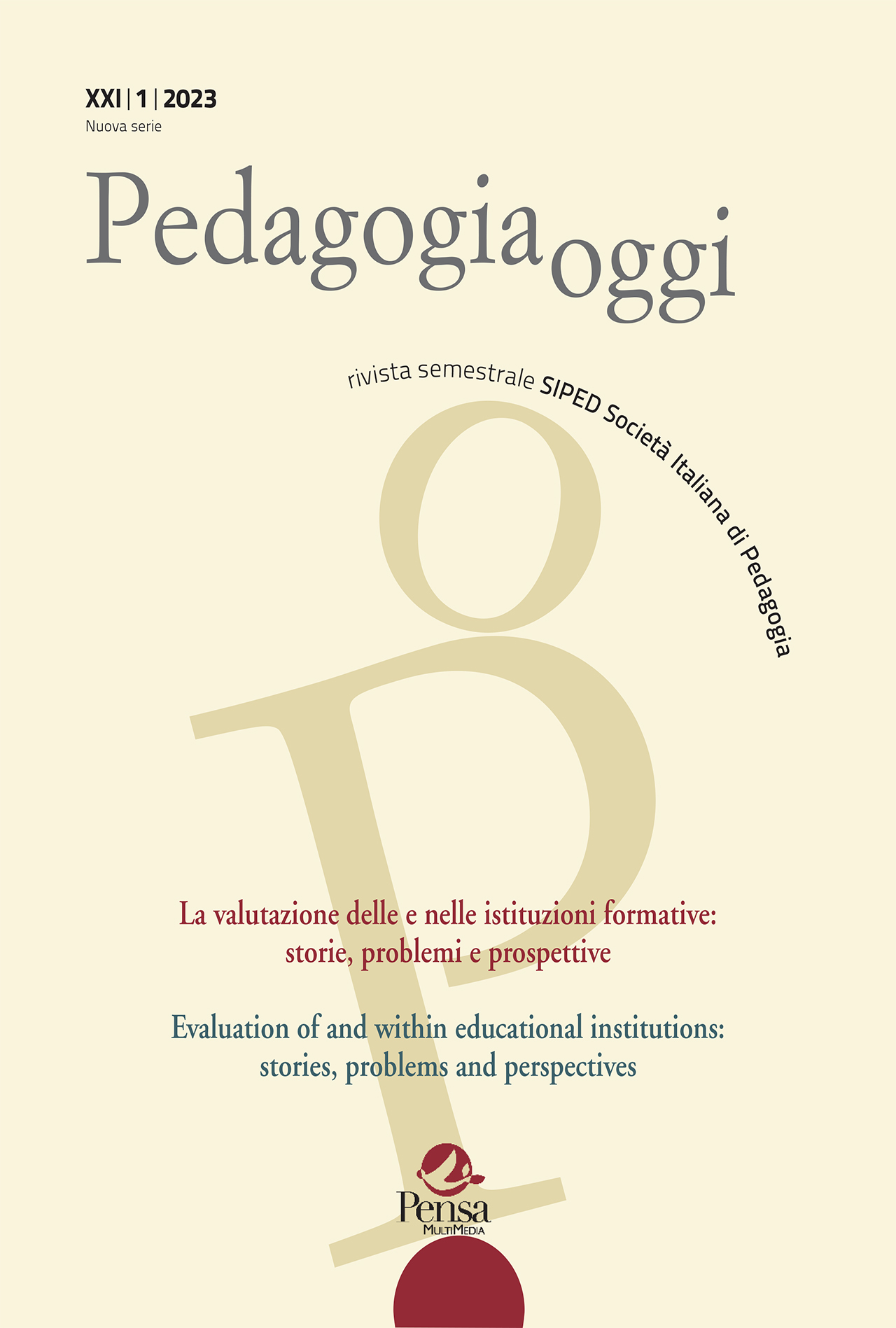Children with disabilities in early childhood services. Evaluating teaching, educational contexts and playfulness
DOI:
https://doi.org/10.7346/PO-012023-14Keywords:
inclusion, early childhood, motor activity, play, evaluationAbstract
The study presented aims to offer functional evidence to the formalization of specific educational evaluation devices related to the "childhood 0-6" area. These devices are aimed, more specifically, at the assessment of skills acquired in the motor field, in children of 2-5 years, with and without disabilities. At the methodological level, empirical survey protocol was constructed and using the tool of self-reflection on inclusive teaching contexts in early childhood and playfulness. The target audience includes 36 children, including 2 with disabilities, in two sections of an early childhood education service. The following variables of inclusive contexts were evaluated: the practices of inclusive areas, the development of skills and stages of play, the accessibility of playgrounds and the development of children’s autonomy. The evaluation was carried out with the standardized test batteries the SVALSI scale and the Gross Motor Function Measure - GMFM. The results show that the experimental group has significantly improved the development of autonomy, inclusion and coarse motor skills improving the starting motor skills, making playfulness a focal part of educational design 2-5 years.




